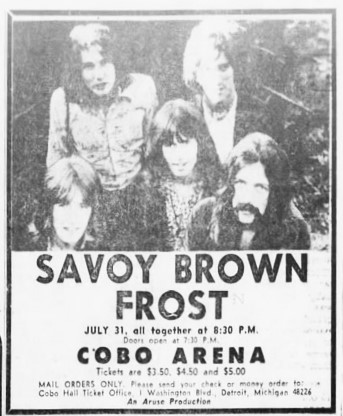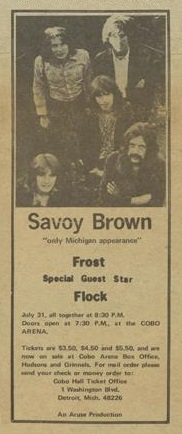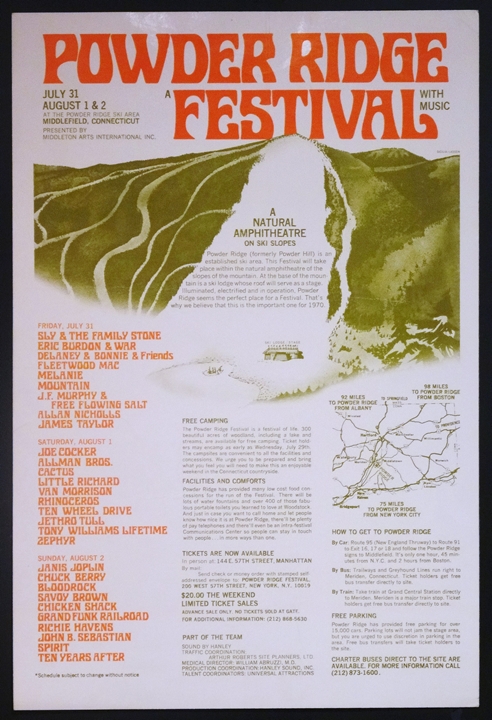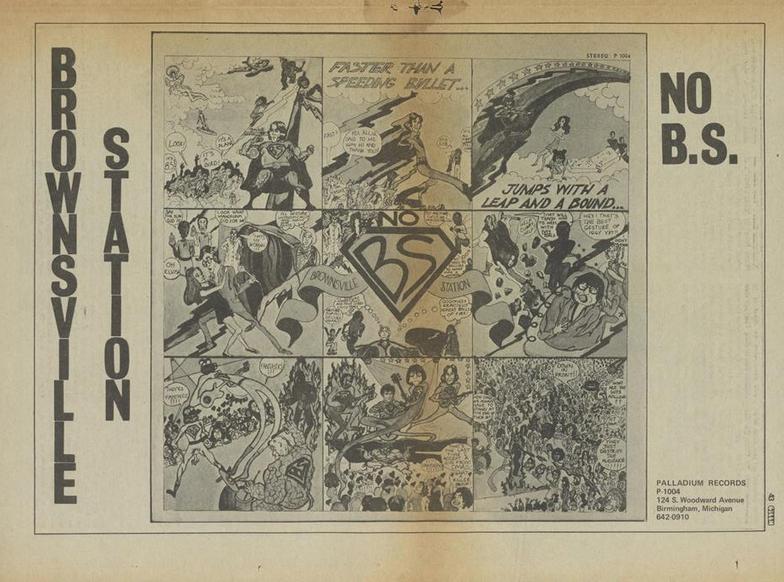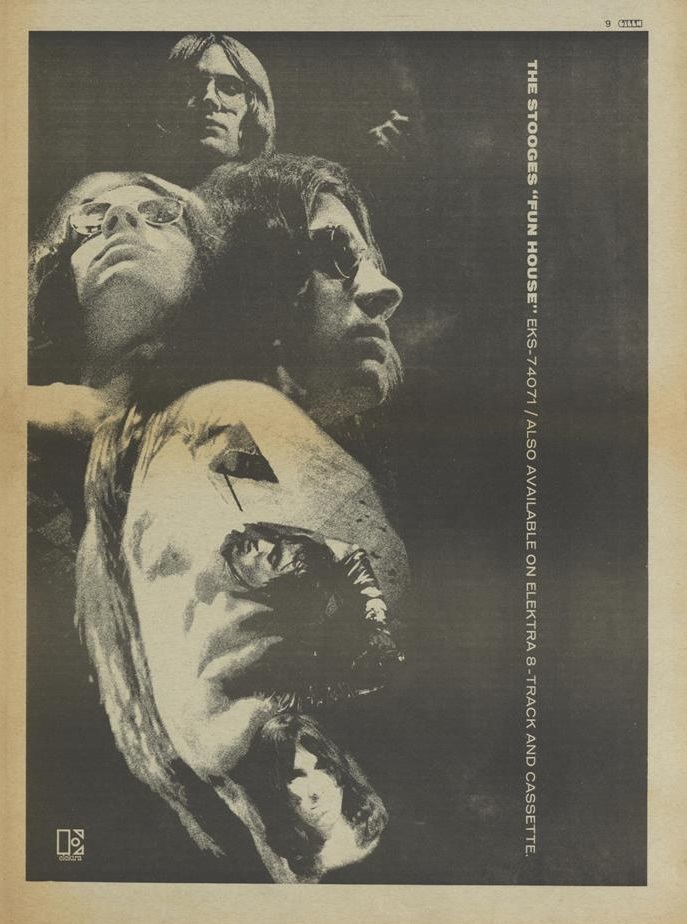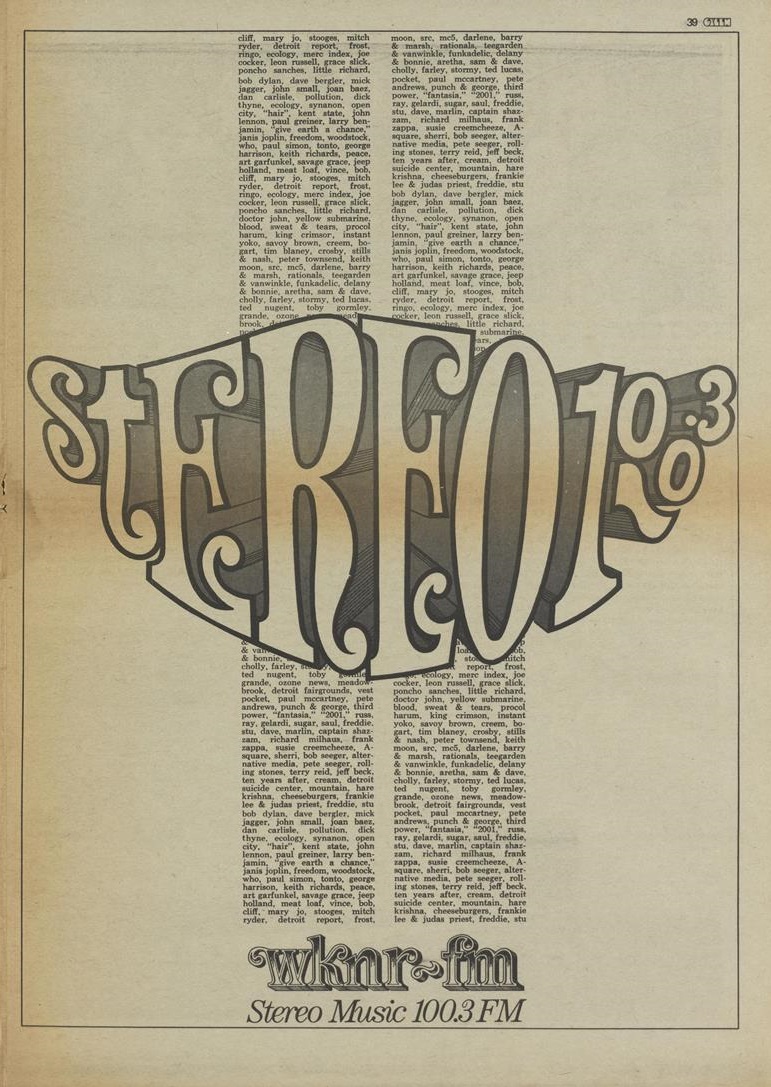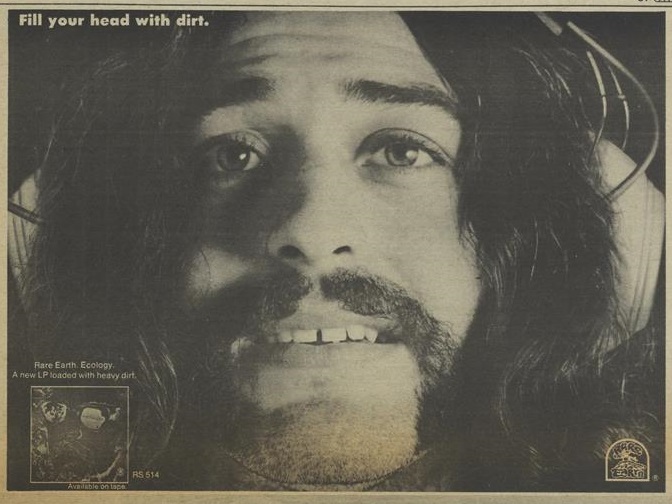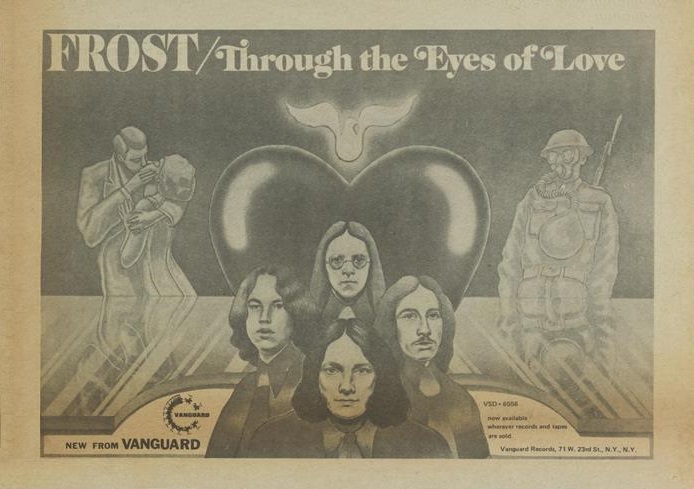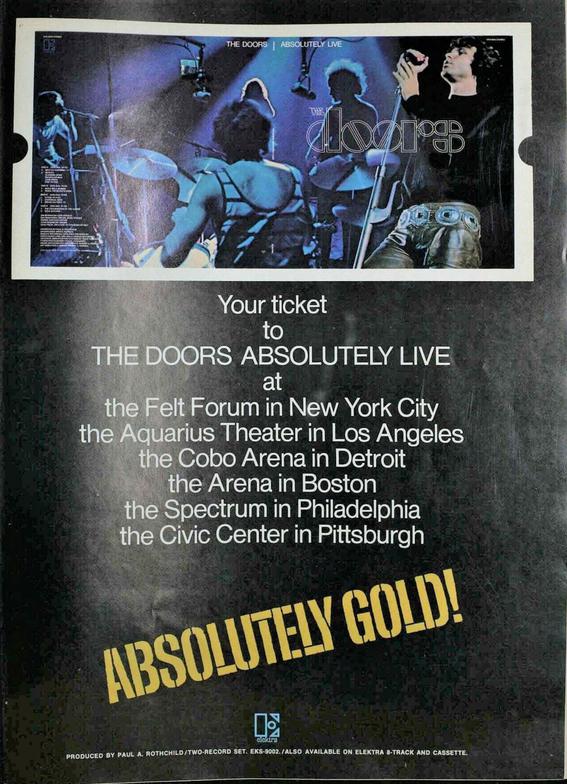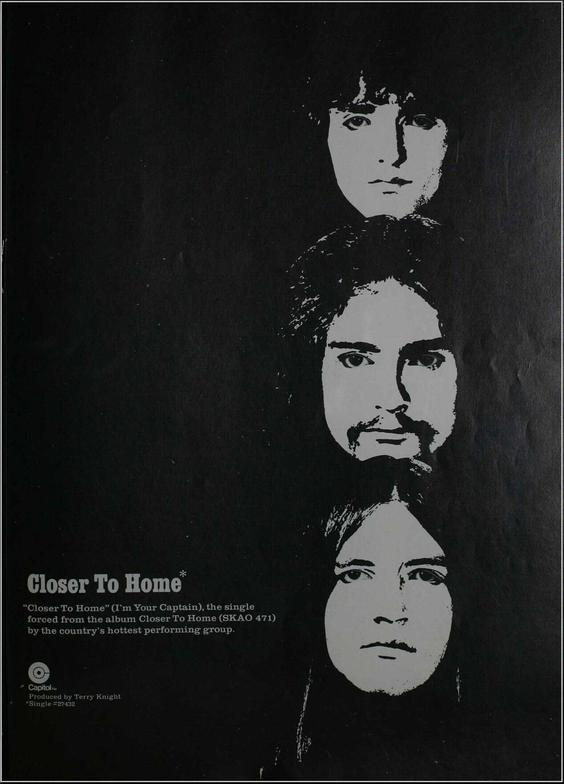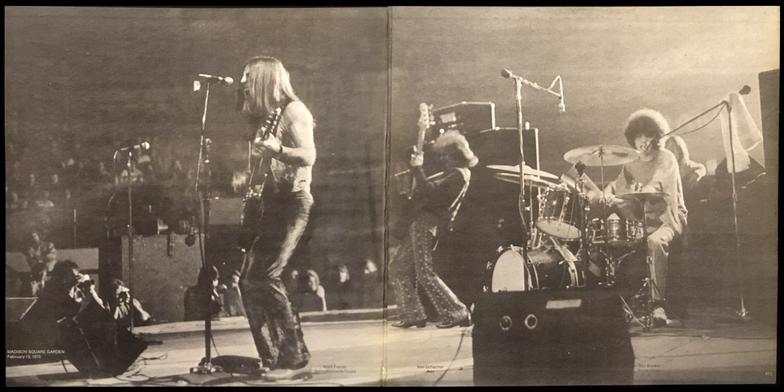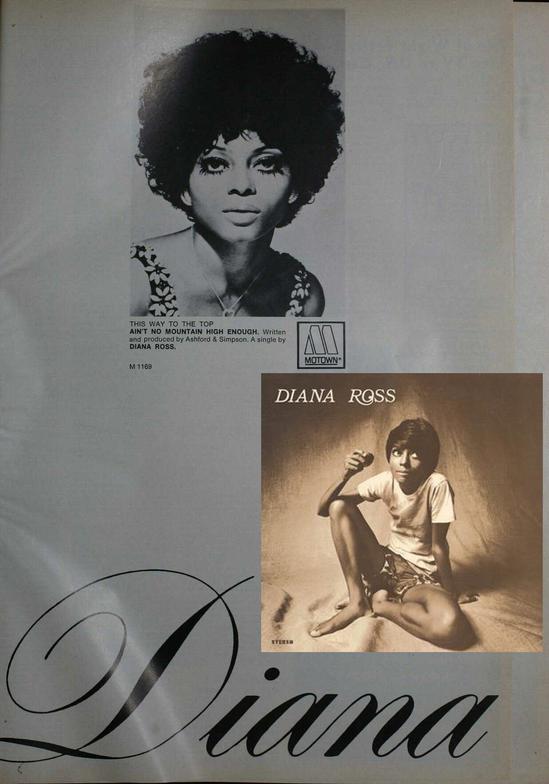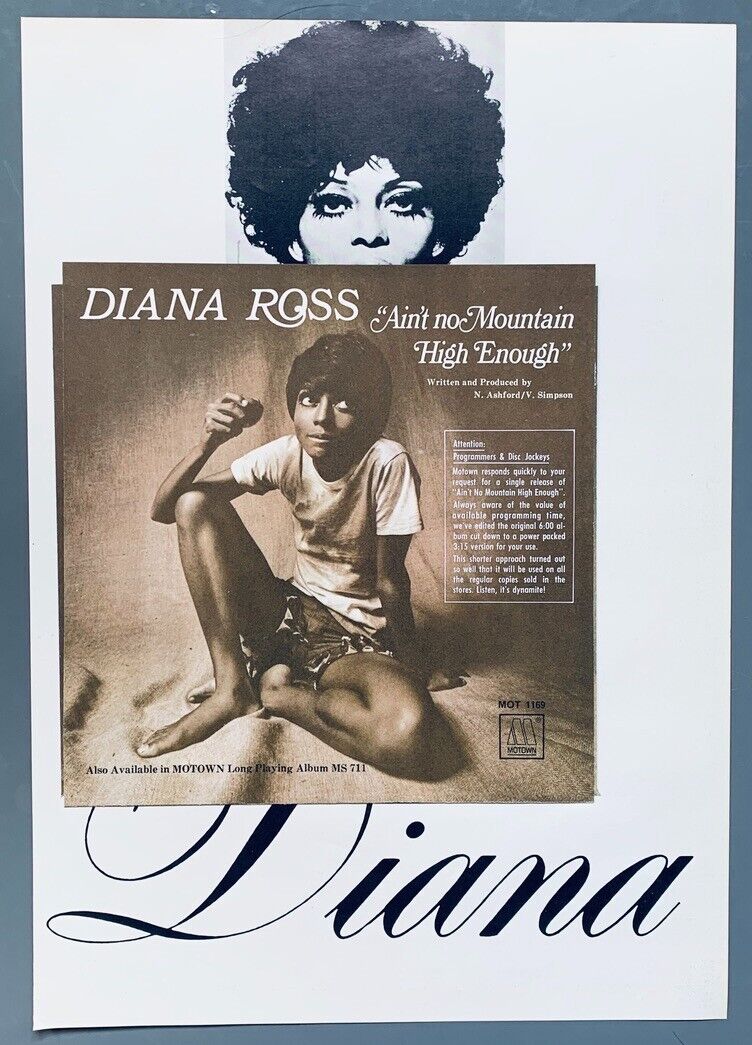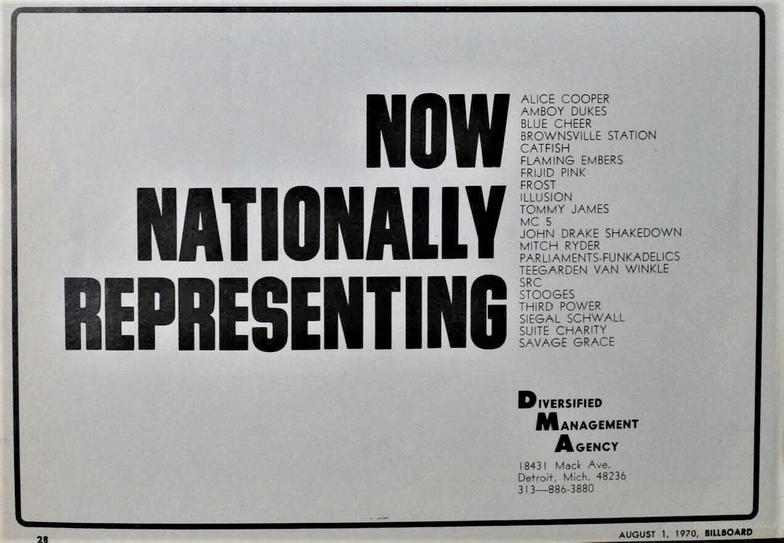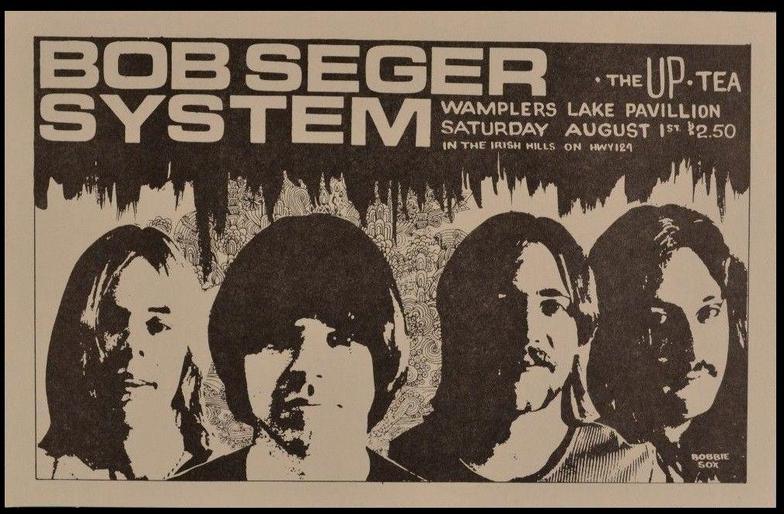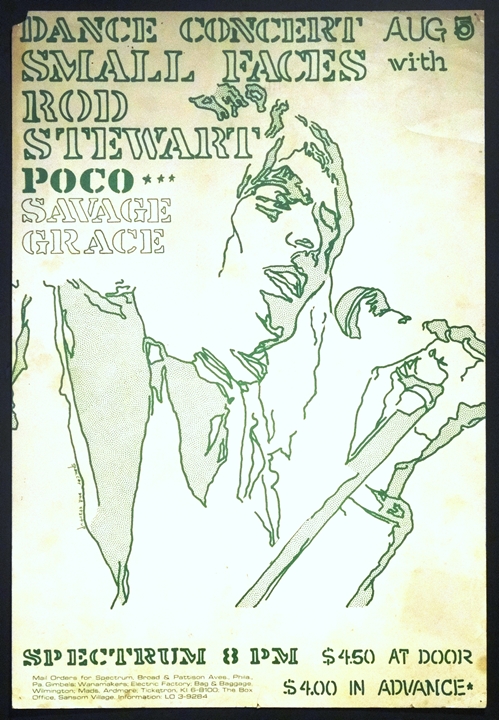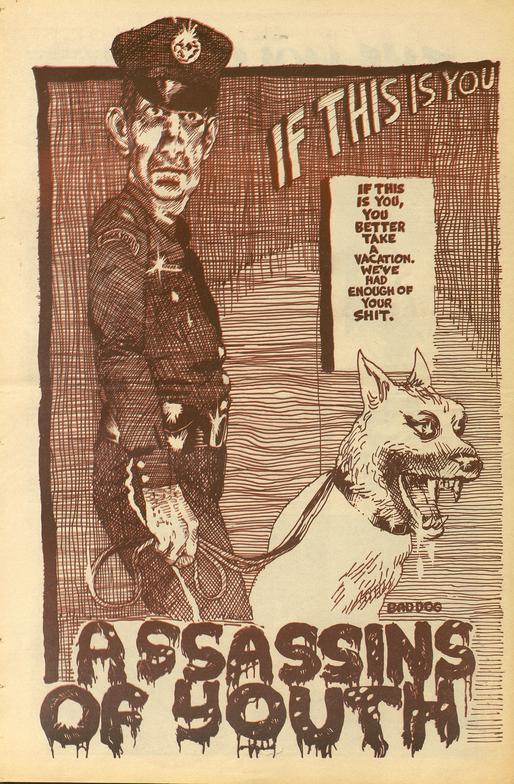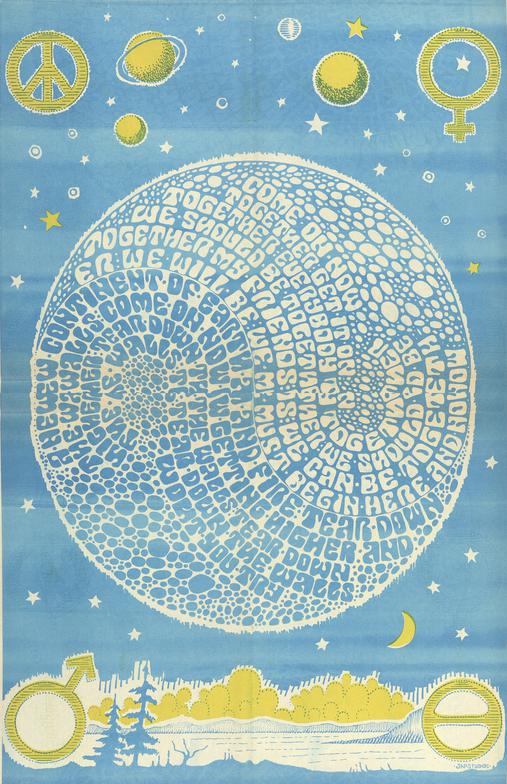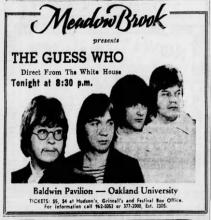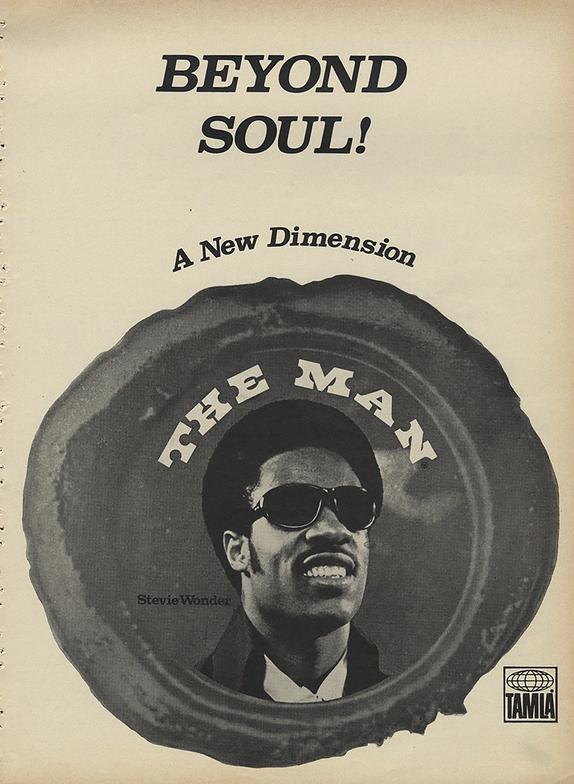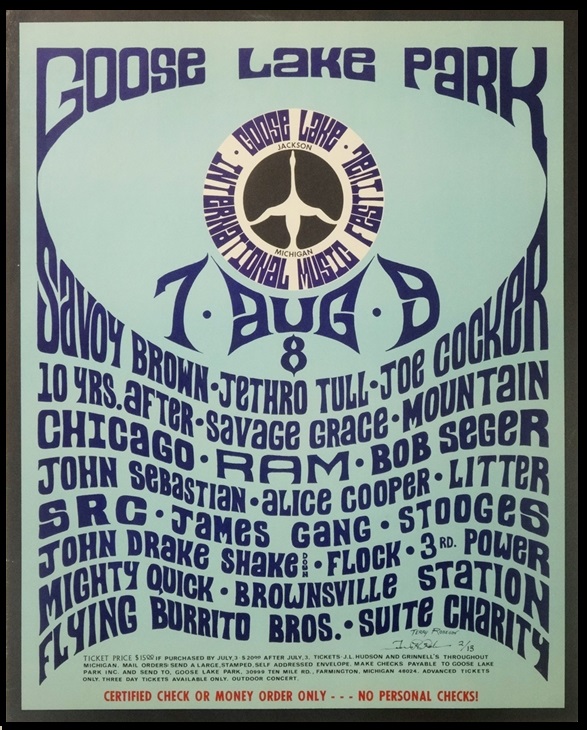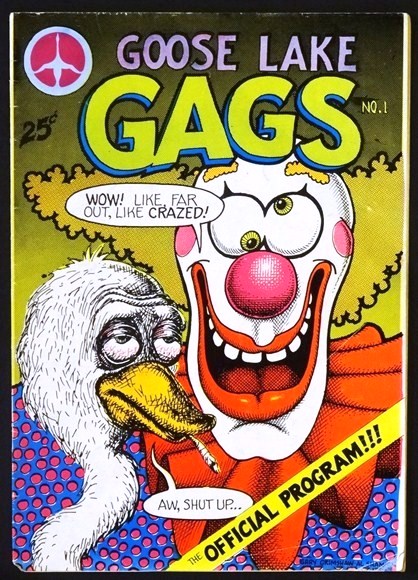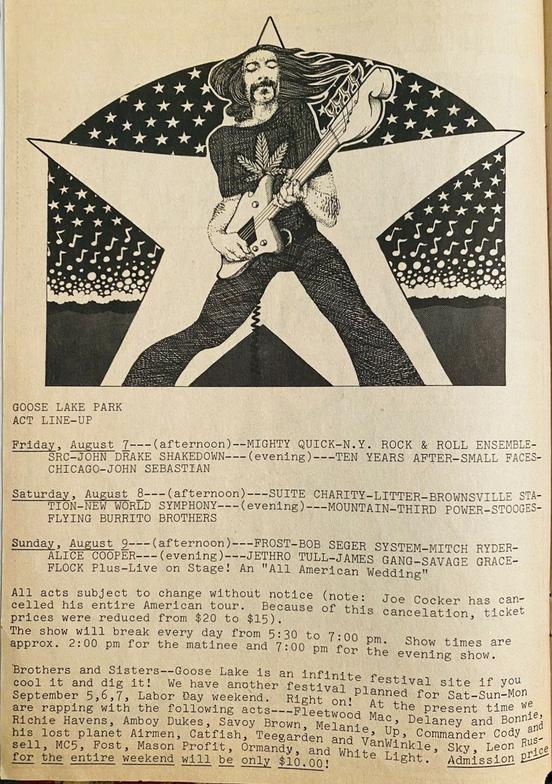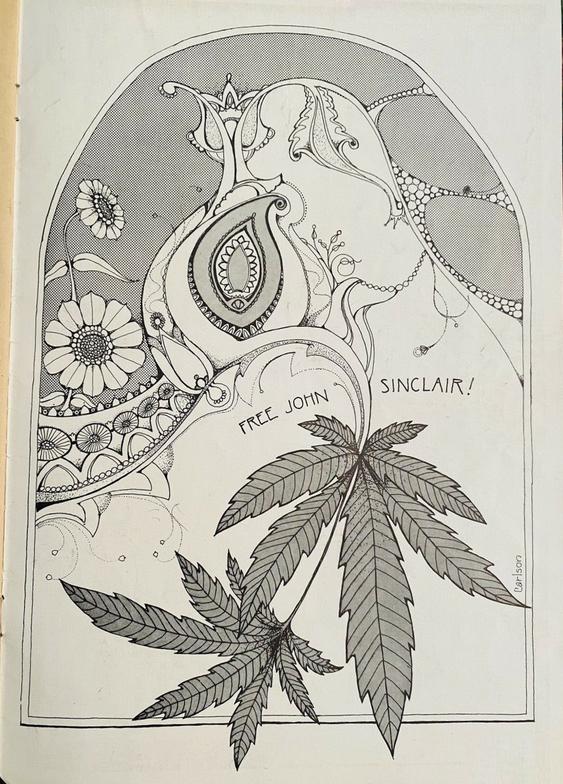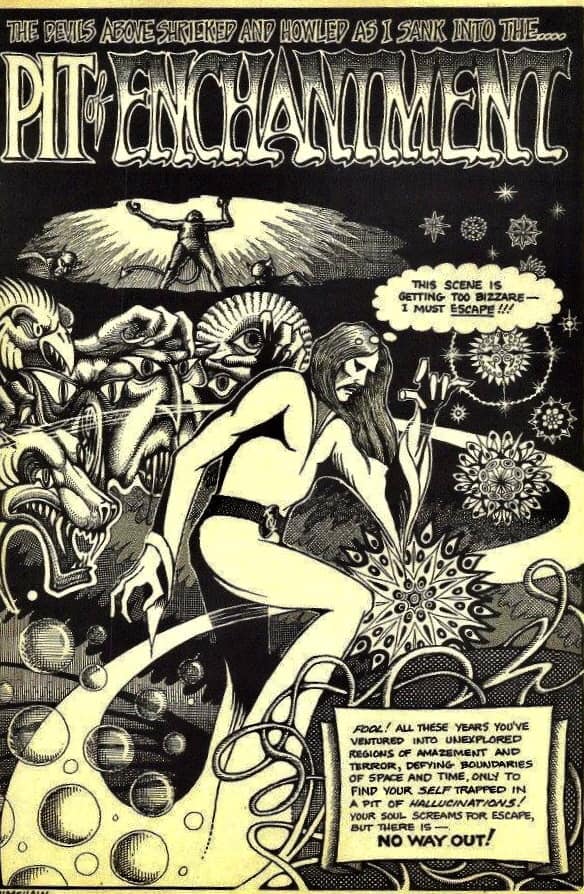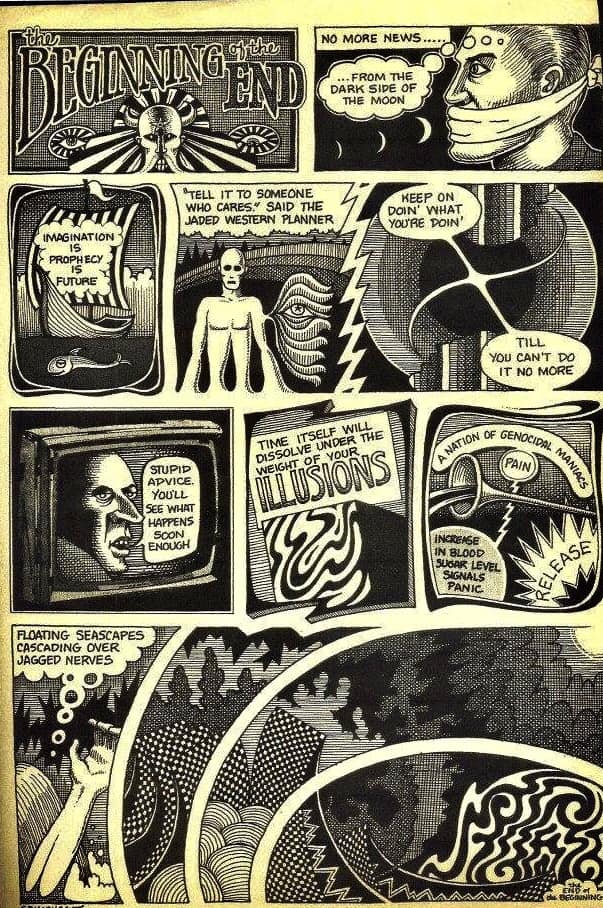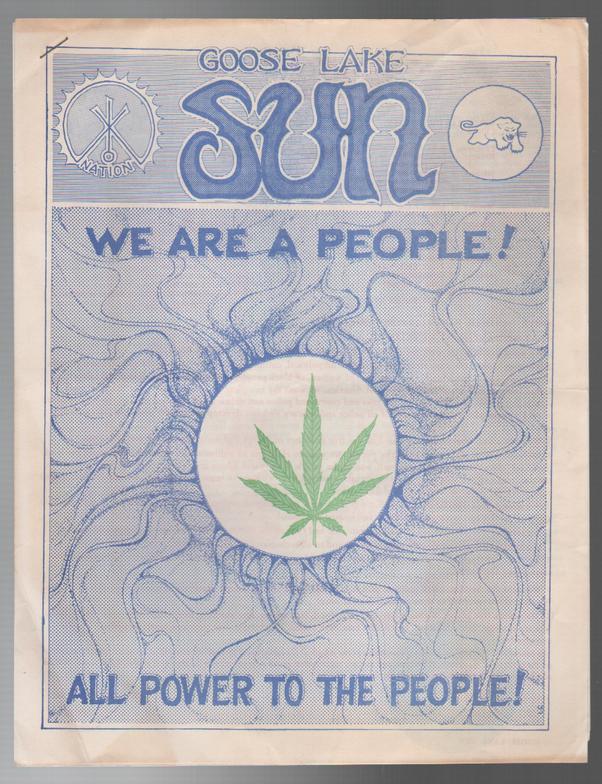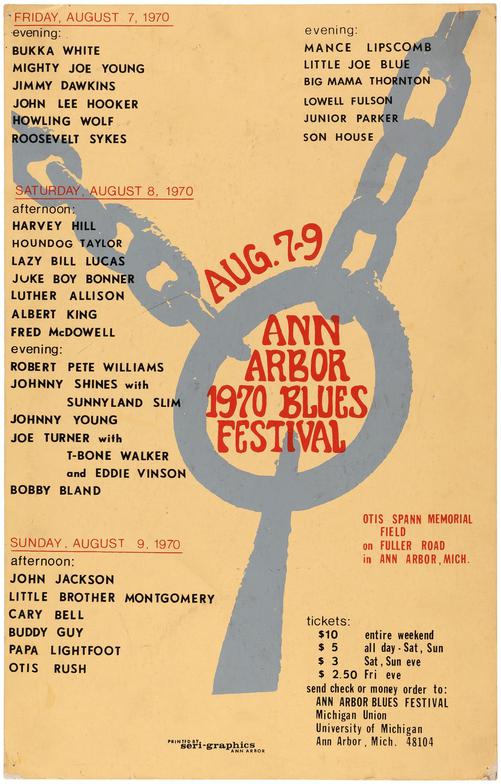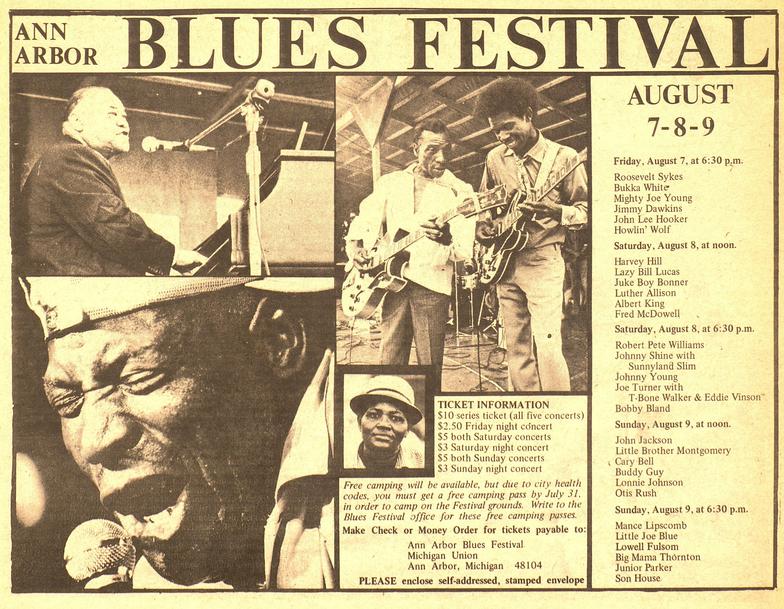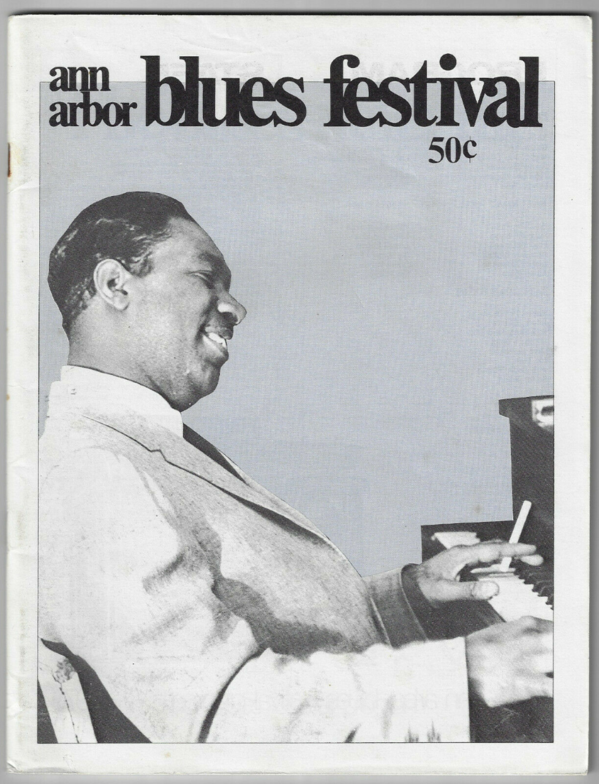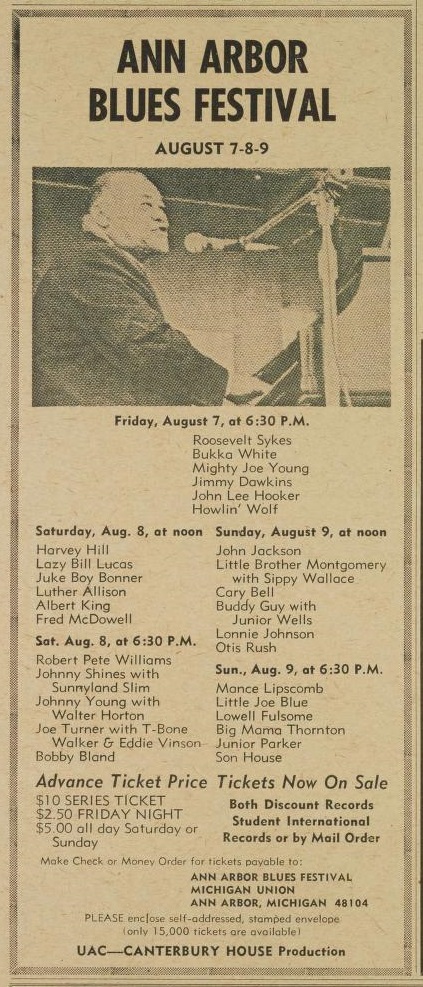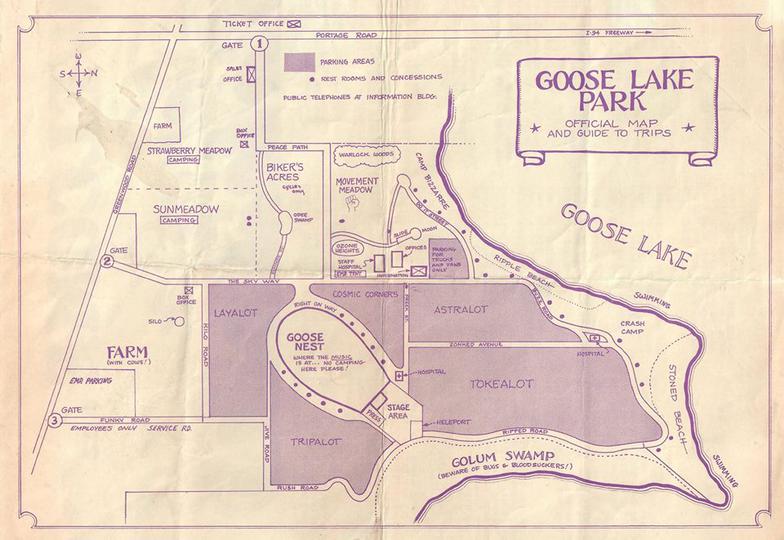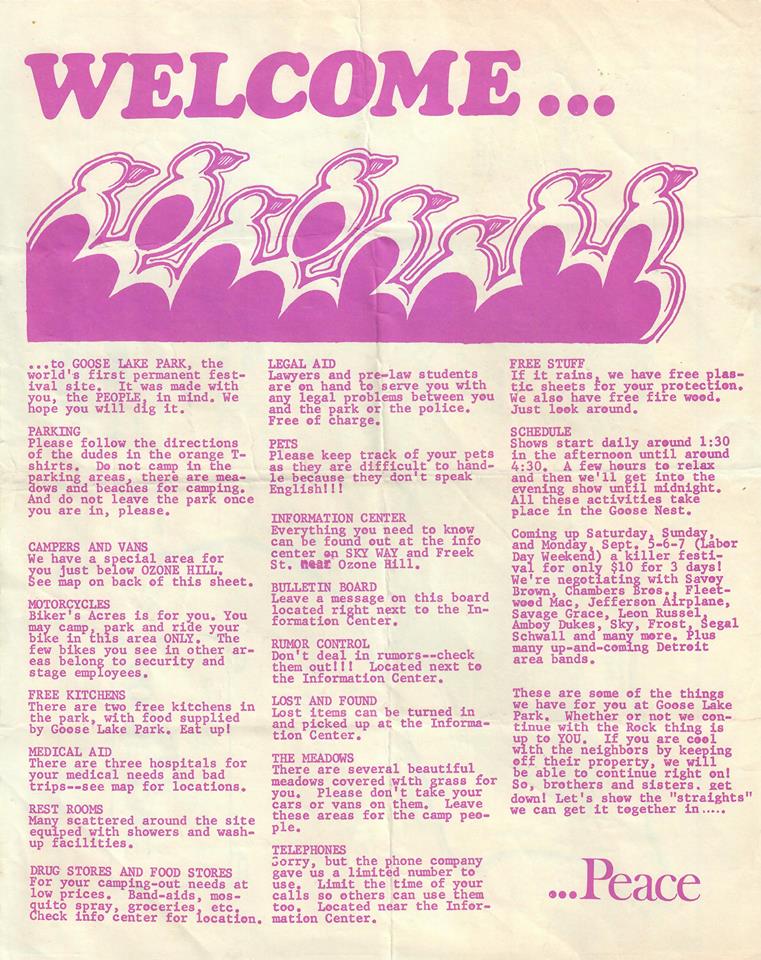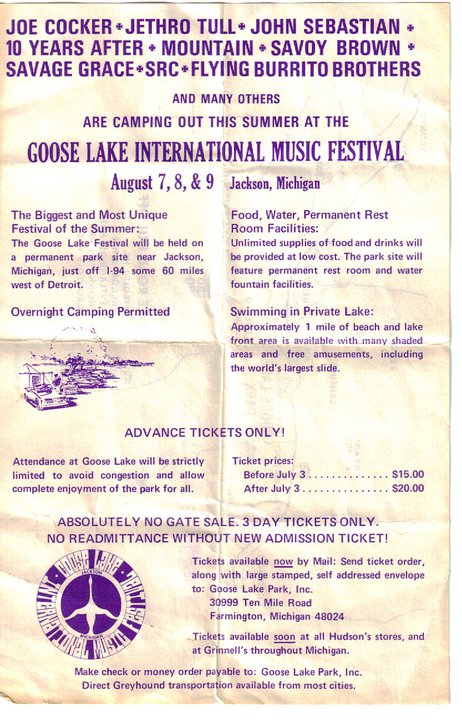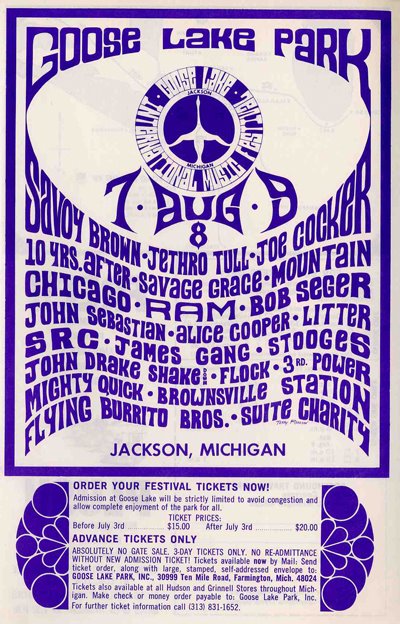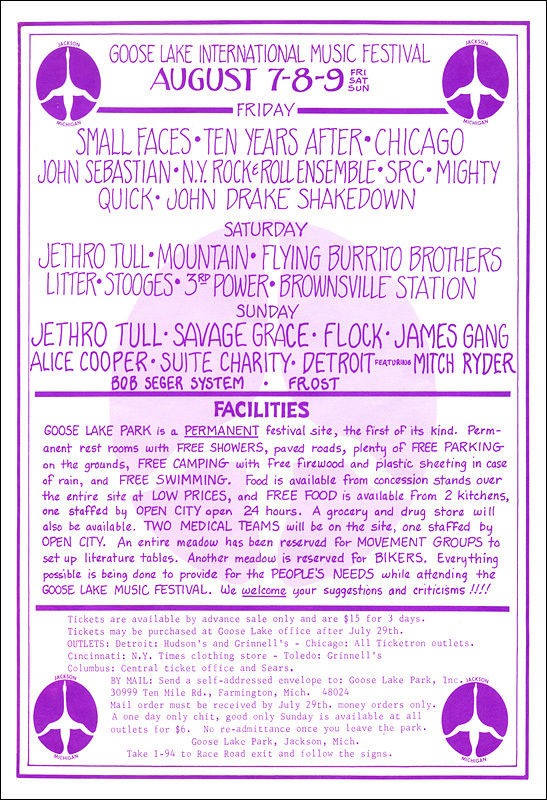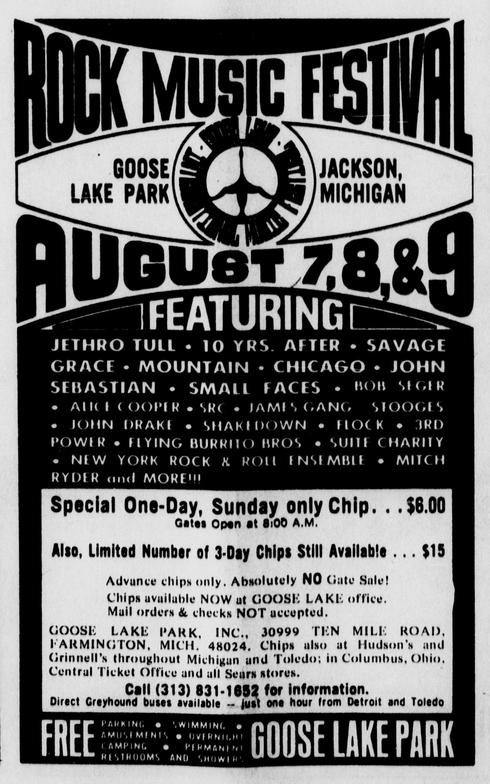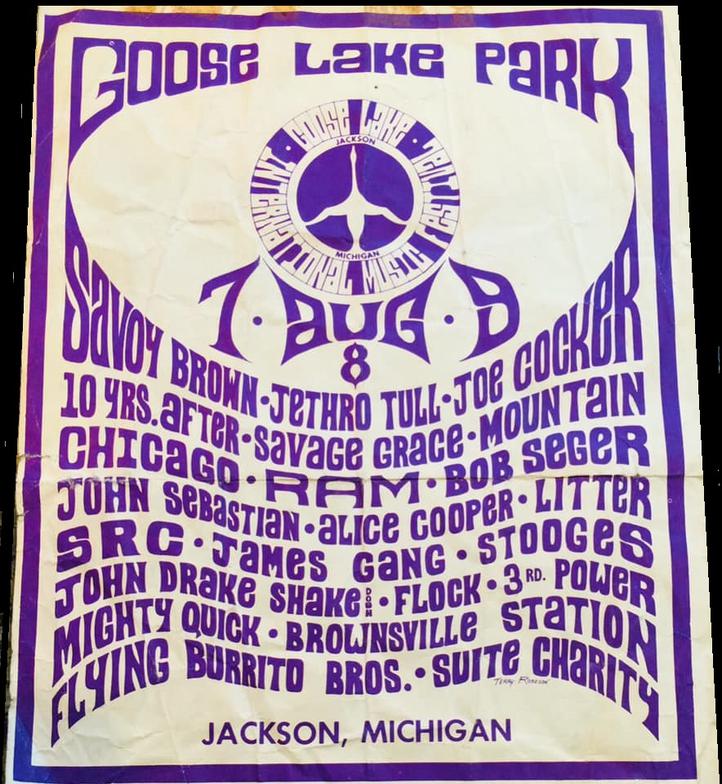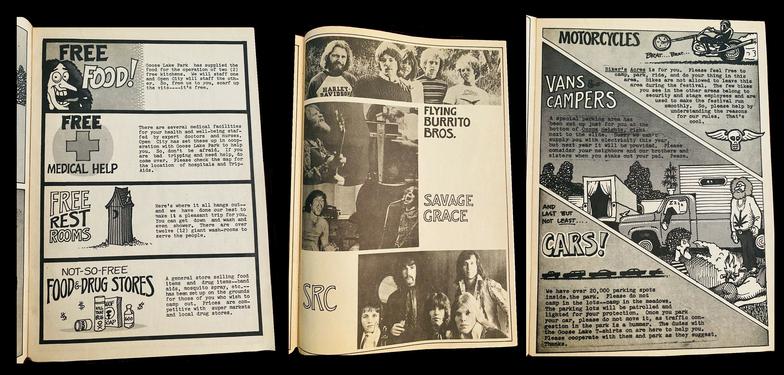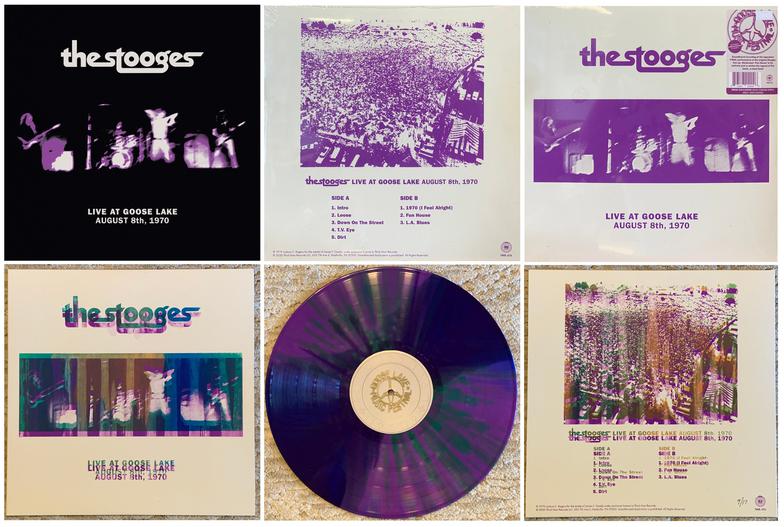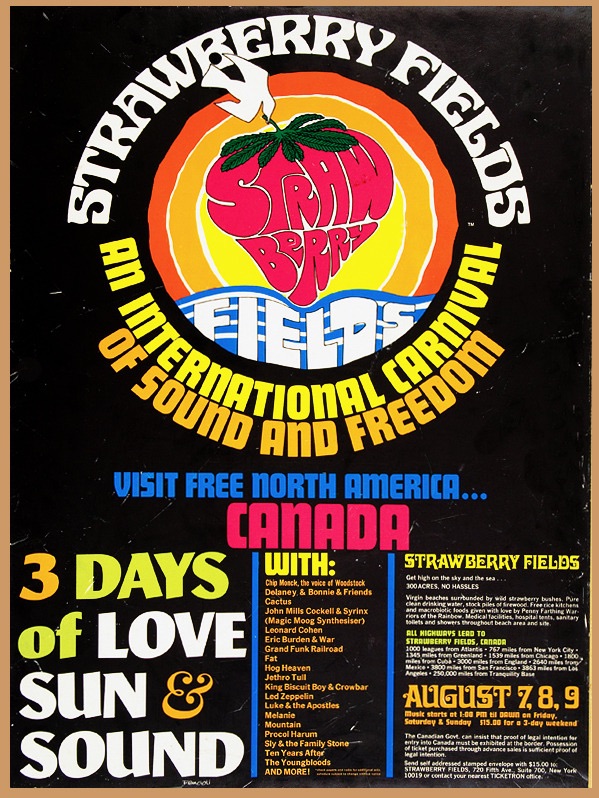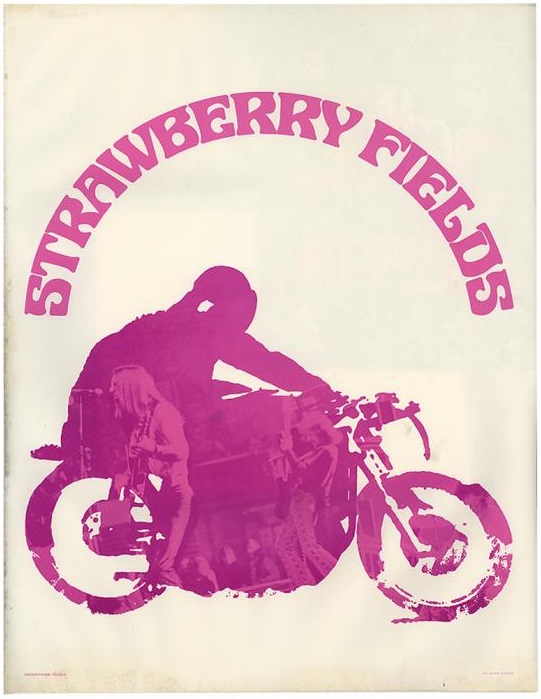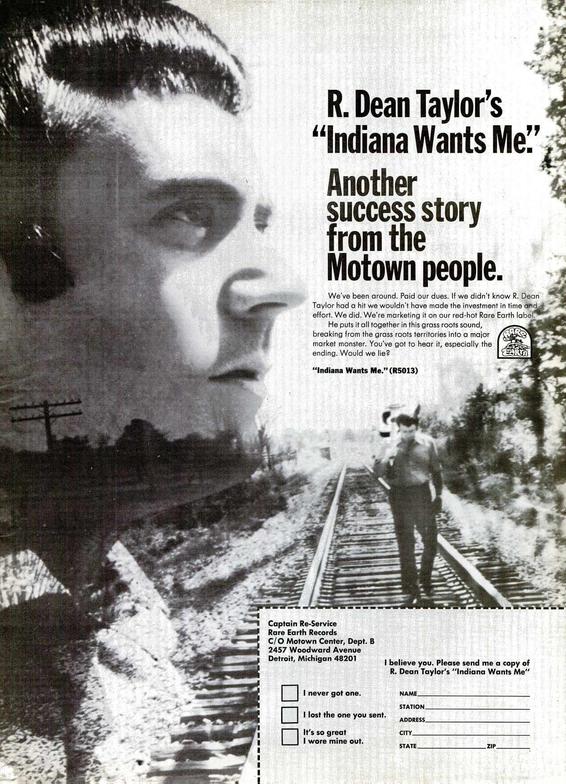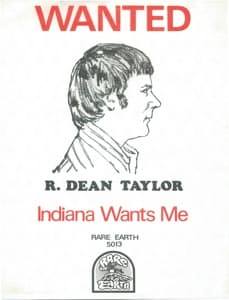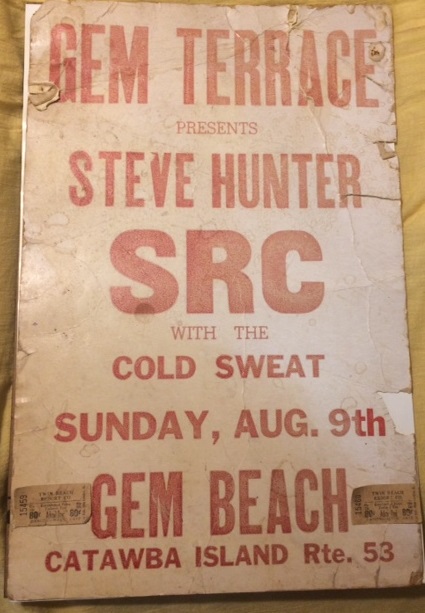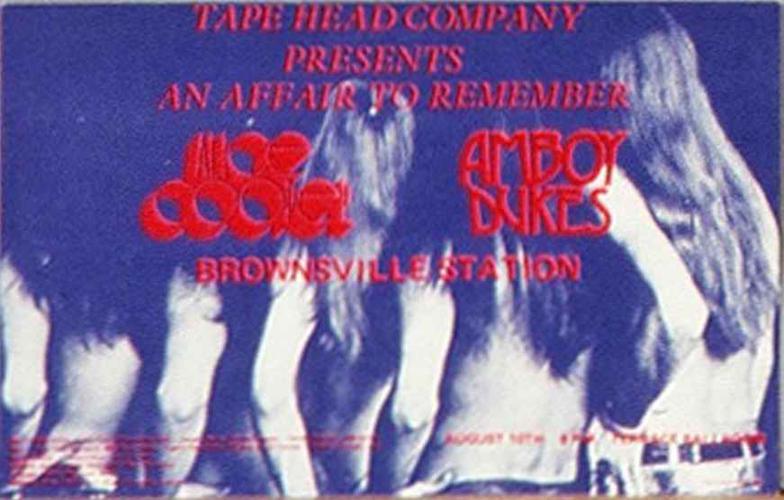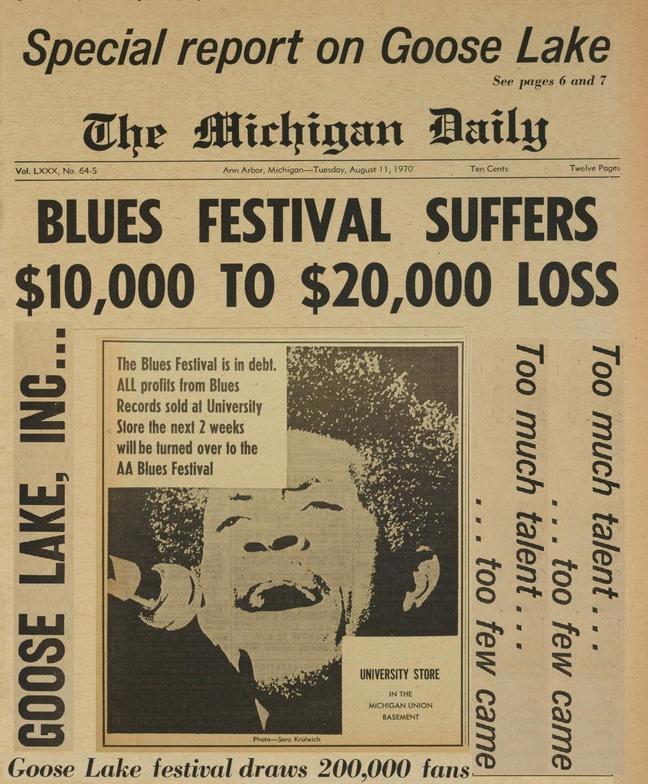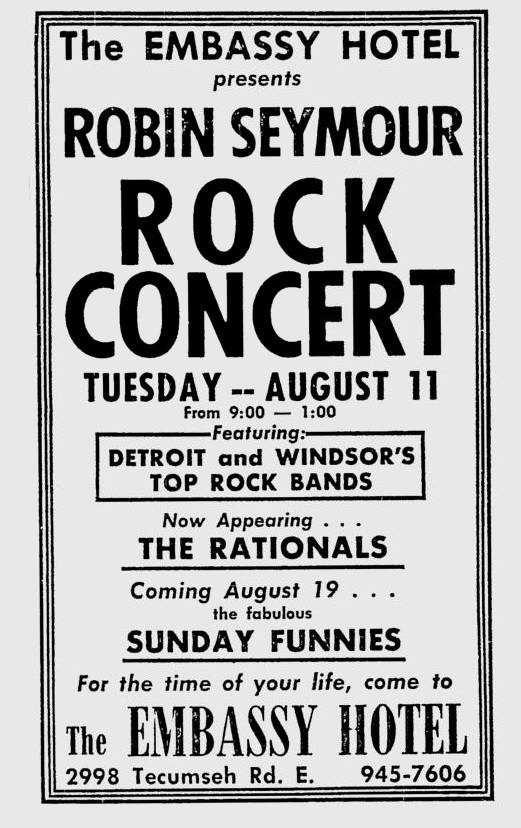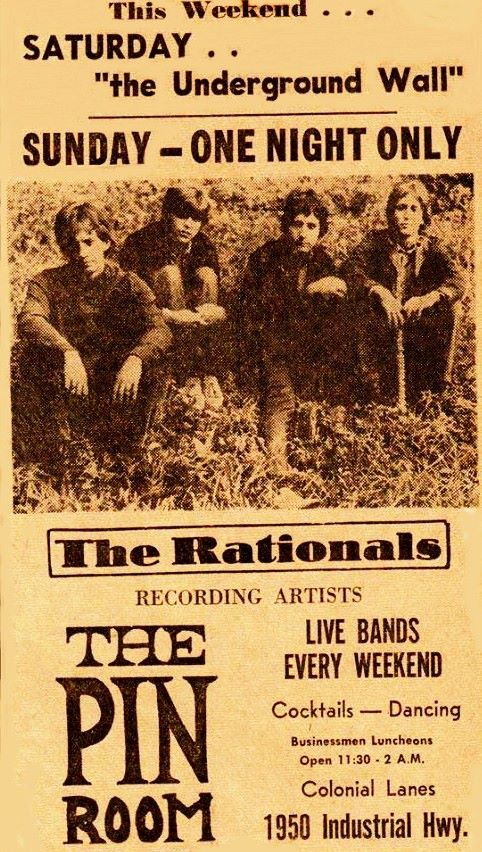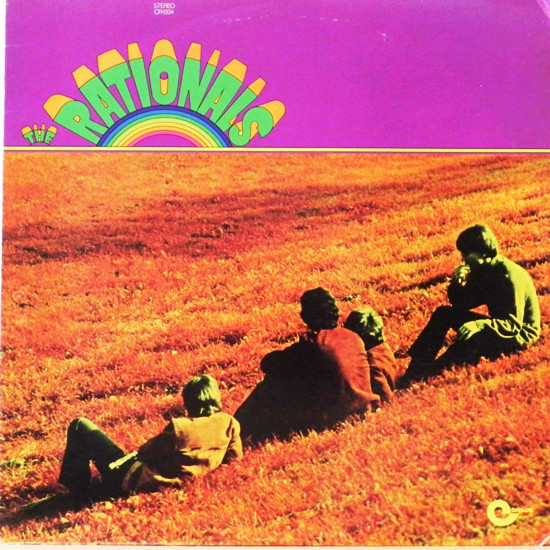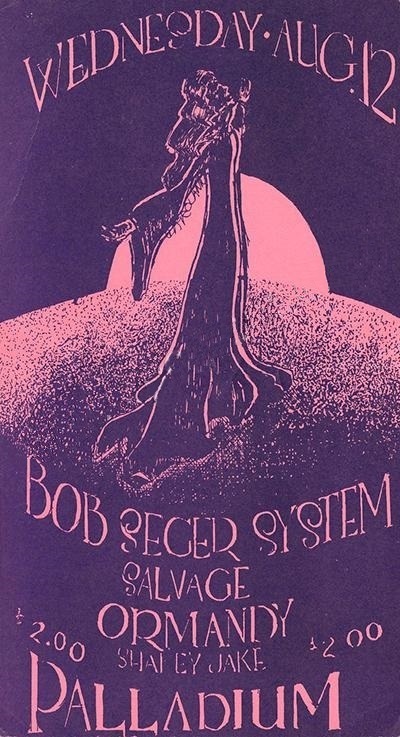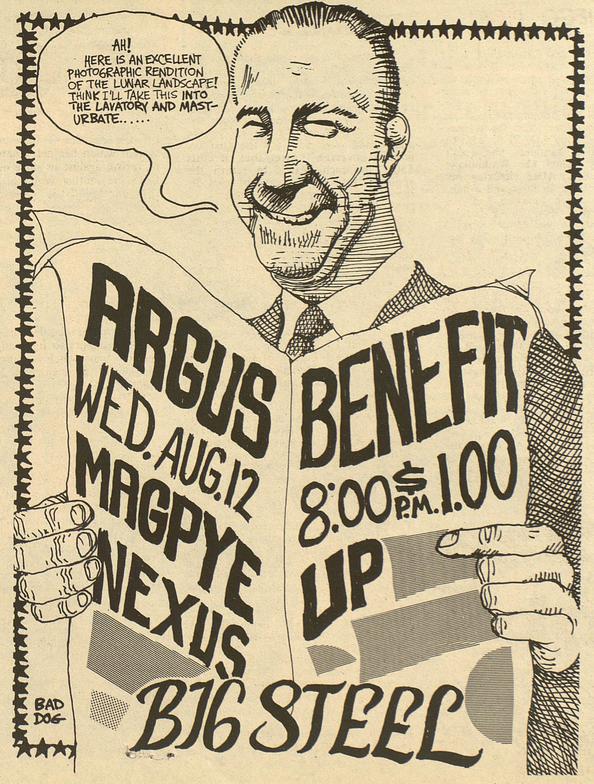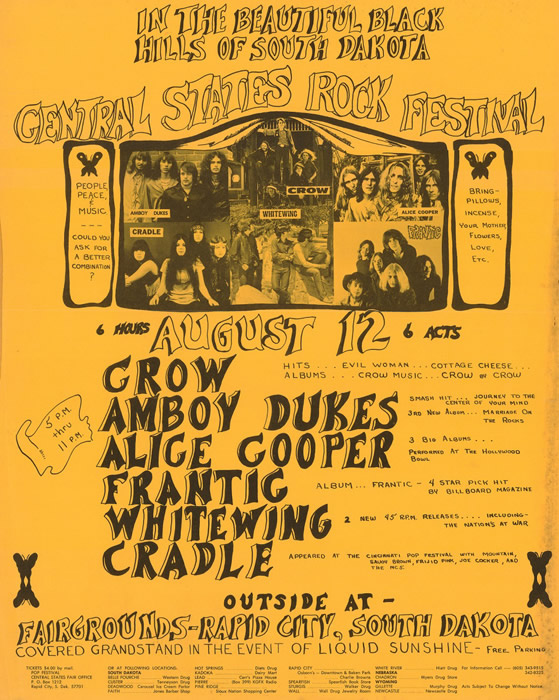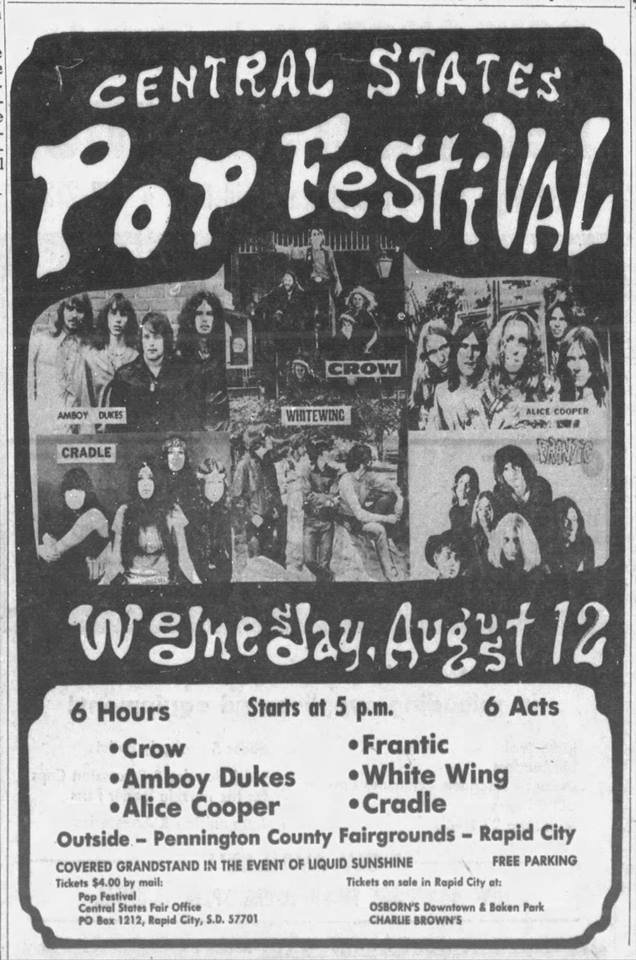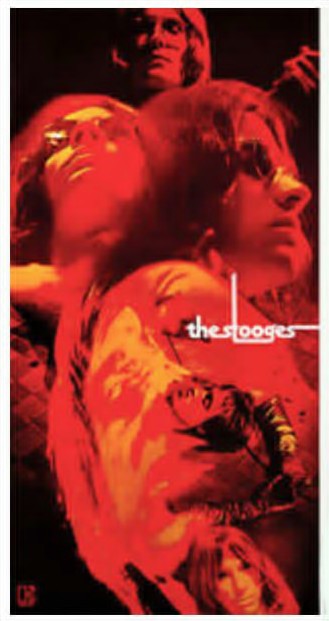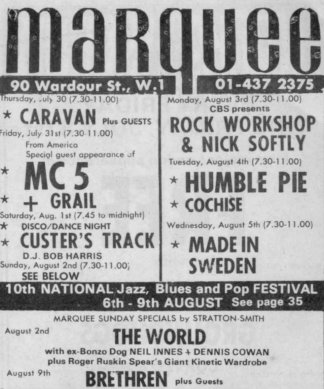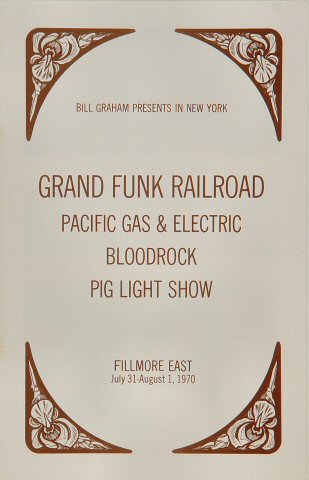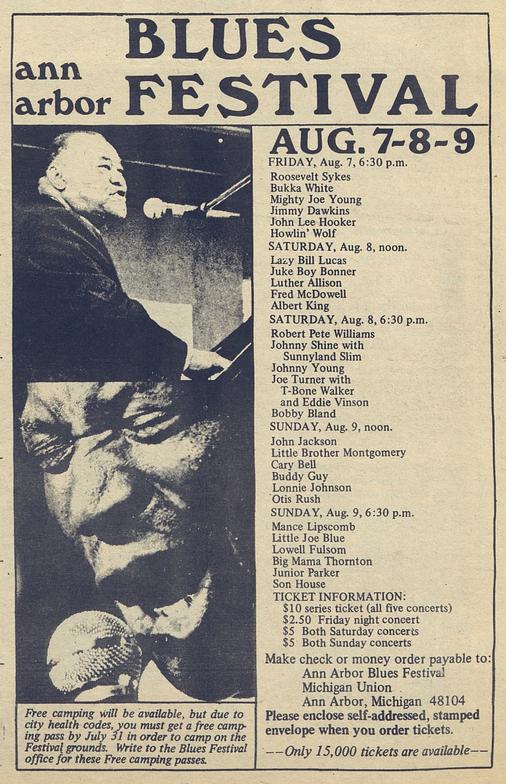Splatt Gallery
Double click here to add text.
Splatt Gallery's History of Michigan Concert Posters
Volume Six - 1970 - Page Thirteen
An ad for Savoy Brown with Frost at Cobo Arena in Detroit, Michigan on July 31, 1970. It was Savoy Brown’s 18th Michigan show, for the first time in a large arena.
***********************************************************
A poster for the Powder Ridge Festival in Middlefield, Connecticut, July 31, 1970 through August 2nd. Although it may have seemed redundant to have the words “With Music” on the poster, as it turned out it was a festival “without music”. The town had a judge issue an injunction to cancel the festival, but about 30,000 people showed up anyways. The Michigan-related bands that had planned to perform were Cactus and Grand Funk Railroad.
While 1969 was a record year for music festivals, both in Michigan and around the country, the following year proved to be especially difficult for festival promoters, of the 48 planned music festivals in 1970, thirty of them were cancelled for one reason or another, usually as a result of the localities objecting to such events in their towns.
A full-page Palladium Records ad for the debut album by Brownsville Station in the August 1970 issue of CREEM magazine.
A full-page Elektra Records ad for the “Fun House” album by the Stooges in the August 1970 issue of CREEM magazine.
A full-page ad for WKNR-FM radio in Detroit in the August 1970 issue of CREEM magazine.
A half-page ad for the fourth album, “Ecology”, by Rare Earth in the August 1970 issue of CREEM magazine.
A half-page ad for the third album, “Through the Eyes of Love”, by Frost in the August 1970 issue of CREEM magazine.
Full-page ad in the August 1, 1970 issue of Billboard magazine for the Doors’ “Absolutely Live” album. The only track on the double-album from a Detroit show was the short two-minute “Dead Cats, Dead Rats”, recorded at Cobo Arena on May 8, 1970, which ironically was one of the longest Doors’ concerts.
The Doors - Dead Cats, Dead Rats (live in Detroit, Michigan) (05/08/70)
https://www.youtube.com/watch?v=01smUq6-J0U
Full-page ad in the August 1, 1970 issue of Billboard magazine for Grand Funk Railroads’ “Closer to Home” album and single of the same name. The single was an edited five-minute version of the ten-minute long album track. Progressive radio stations typically played the longer album version and it received greater airplay than the shortened single which was only a modest hit.
Grand Funk Railroad - Closer to Home (album version) (1970)
https://www.youtube.com/watch?v=7fryGyqTJPU
The inside gatefold of Grand Funk Railroads’ “Closer to Home” album with photo of the band performing at Madison Square Garden in February 1970.
Full-page ad in the August 1, 1970 issue of Billboard magazine for Diana Ross’ first solo album. The second single release from the album, her version of the Marvin Gaye and Tammi Terrell hit “Ain’t No Mountain High Enough”, became Ross’ first #1 single and became the name of the album in its re-issues.
Diana Ross - Ain’t No Mountain High Enough (1970)
https://www.youtube.com/watch?v=5_pmKPWLBrE
Poster by an unknown artist “Bobbie Sox” for the Bob Seger System at Wamplers Lake Pavilion, August 1, 1970, with the UP and Tea.
An ad in the August 1, 1970 issue of Billboard magazine for Dave Leone’s Diversified Management Agency, DMA, with a long roster of Michigan bands.
Poster by Spencer Zahn for the Spectrum in Philadelphia, Pennsylvania, August 5, 1970, with Savage Grace opening for the Small Faces with Rod Stewart, and Poco.
Poster by Al Shamie (Bad Dog) from the August 5, 1970 issue of The Ann Arbor Argus newspaper.
Meanwhile, over in England, the MC5 played a couple of well-received shows in London and then became a late addition to the Popanalia Festival in Le Biot, France on August 5, 1970. The MC5 were not listed on the poster due to their late addition. Ambitiously planned to last 36 hours, the poorly managed grounds, just as in the case of Phun City, allowed 30,000 out of the 34,000 people to simply walk in for free.
Again, as with Phun City, the promoters implored the groups to play for free but this time the bands were not as accommodating. When the band Soft Machine refused to go on, the crowd rioted, burning down the stage. The only acts that actually got to play were Joan Baez, Country Joe and Rare Bird. It was subsequently dubbed by the French as "Festival Maudit de Biot" (The cursed festival of Biot)
Centerfold poster from the August 6, 1970 issue of The Fifth Estate newspaper by Jap Studios.
Newspaper ad for the first Michigan appearance by the Canadian band The Guess Who, at the Baldwin Pavilion at Oakland University in Rochester Hills, August 7, 1970. The band, whose roots went all the way back to 1958, had already charted in the US with songs such as “These Eyes”, “Laughing”, and “Undun”, but it was the title track of their sixth studio album “American Woman”, released as a single in March 1970 that was their first, and only, #1 hit on the Billboard Hot 100 chart. Their growing fame got them an invitation to play at the White House on July 17, 1970 for a Nixon family party, but only on the condition that they would agree to not play said song.
The Guess Who – American Woman (album version) (1970)
https://www.youtube.com/watch?v=sk3y3QxvuGg
A Tamla Records poster/ad promoting Stevie Wonder, dated August 7, 1970.
The highly-anticipated weekend finally arrived, August 7-9, 1970 for the Goose Lake Festival near Jackson, Michigan. Poster by Terry Robeson. Surprisingly few line-up changes, the way these things went, but Savoy Brown, Joe Cocker, and Alice Cooper did not appear, and the last minute additions were Rod Stewart & the Faces, and the MC5.
Here’s a clip of Savage Grace performing a savage version of “All Along the Watchtower”, along with interviews of some un-amused local residents.
Savage Grace – All Along the Watchtower (live at Goose Lake) (1970)
https://www.youtube.com/watch?v=c5dkg58amVc&feature=youtu.be
Gary Grimshaw designed the official program for the Goose Lake Festival, a fourteen page comic book loaded with art. The cover is a collaboration by Grimshaw and Al Shamie (Bad Dog).
The line-up page from the Goose Lake Festival program comic book with illustration by Gary Grimshaw, originally from a Memorial Hall concert poster on June 19th, that will be often re-used, particularly on ads for the Agora Ballroom in Cleveland, Ohio.
Poster page in the Goose Lake Festival program comic book by Carlson, whose only other known work so far was a poster for the 1967 Jefferson Airplane concert at Ford Auditorium.
Two pages of Gary Grimshaw art in the Goose Lake Gags comic book.
A special Goose Lake edition of The Sun which may be only a couple of pages. The generally accepted attendance figure for Goose Lake was 200,000 people, which probably makes it the largest gathering for a music event in Michigan history.
Here’s an interesting little video that runs from the least attended (the Beatles playing for 30 people in Hamburg – although we all know of even smaller ones) to the largest (3.5 million for Rod Stewart in Rio de Janeiro in 1994). It does not list Goose Lake, but you can see where the 200K fits in along the list.
https://www.youtube.com/watch?v=22o-OR6Hgw0
The second Ann Arbor Blues Festival, August 7-9, 1970 had just as stellar a line-up as the first year, maybe even more so, but it was unfortunately scheduled the same weekend as the Goose Lake Festival, and suffered poor attendance, losing money and would take a one-year hiatus before trying again. Poster by an unknown artist.
A detailed ad for the second Ann Arbor Blues Festival, August 7-9, 1970.
Cover of the program book and two newspaper ads for the 1970 Ann Arbor Blues Festival.
The map insert in the Goose Lake Festival program comic book.
Back sides of maps and flyers for the Goose Lake festival.
Front and back of a commonly bootlegged flyer for the Goose Lake festival.
Late ad with Sunday-only chip available (custom poker chips were issued in lieu of paper tickets) and final image of the poster/flyer by Terry Robeson.
A few more pages from the Goose Lake Gags comic book with Gary Grimshaw art and one of the bands pages with Michigan groups Savage Grace and SRC.
In 2020, Third Man Records in Detroit, Michigan issued the found-recording of the Stooges’ entire set at the Gooselake festival on August 8, 1970. A Record Store Day limited edition of 1000 copies with a gray-cream color. Most exclusive was a colored vinyl and multi-color screen printed cover of just (17) copies, available only to friends and family of TMR.
The entire recording can be heard here:
The Stooges Goose Lake International Music Festival Michigan 08 08 1970
https://www.youtube.com/watch?v=7BK-c-aG0MA
Lost in the attention over the Goose Lake Festival, and the Ann Arbor Blues Festival, was the three-day Strawberry Fields festival in Canada, August 7-9, 1970. After being denied permission at two previous locations, the promoters selected Mosport Park and billed the event as a championship motorcycle race, featuring “some contemporary entertainment”, as they booked 30 to 40 bands, the likes of Led Zeppelin (cancelled), to Sly & the Family Stone. They dodged a last-minute injunction when the authorities caught on, and they did have some motorcycles do a few laps to conform with the permit, but as a result the festival was better promoted in the US with posters like this.
Michigan bands that played at Strawberry Fields (hence, not at Goose Lake) were Grand Funk Railroad, Alice Cooper, Cactus (half-Detroit, half-Vanilla Fudge), and the Mike Quatro Jam Band, who apparently went so well received that the accounts of standing ovations were added to the band’s promotional materials.
Here’s a Canadian poster for the Strawberry Fields festival, August 7-9, 1970. Hidden in the central image is the much-used photo of Grand Funk Railroad taken at Madison Square Garden in February 1970.
A full-page Motown Records ad in the August 8, 1970 issue of Billboard magazine for the single by R. Dean Taylor on the Rare Earth label.
R. Dean Taylor – Indiana Wants Me (1970)
https://www.youtube.com/watch?v=fZL_tZxyBDo
A Rare Earth Records poster/ad for the R. Dean Taylor hit single “Indiana Wants Me”, released in August 1970, which peaked at #5 on the Billboard Hot 100 chart and made it to #1 on the Cash Box singles chart. We’ve just learned that Taylor passed away just a couple of months ago, on January 7, 2022, at the age of 82, after contracting COVID-19 last year.
Poster for SRC and possibly Steve Hunter (?) at the Gem Terrace Beach Dance Hall in Catawba Island Township, Ohio, August 9, 1970.
An all-Michigan bands show in Salt Lake City, Utah, August 10, 1970, however, Alice became ill and the band did not appear. The Amboy Dukes and Brownsville Station performed with a local band, Holden Caulfield, opening.
Newspaper ad with Cactus opening for Ten Years After in Port Chester, New York, August 10-11, 1970.
An ad from the University Store at the University of Michigan in Ann Arbor offering some post-festival financial support for the Blues Festival organizers, which we have superimposed over the front page of the August 11, 1970 edition of the Michigan Dailey newspaper, along with some inside stories’ headlines. Much was made of the effect on the festival by the concurrent Goose Lake Festival which attracted half of the state’s youth population, but we’re not sure that there would not have been all that much cross-over between the two audiences.
Away from the festival fields and back to the clubs, Robin Seymour, still actively promoting shows by his favorite band over the last six years, The Rationals for this show in Canada, August 11, 1970.
from a brief history of the rationals - "The bitter end came following an August 1970 gig at the Embassy Hotel Lounge in Windsor, Ontario. "One night, we just...everybody started arguing, and I said, 'Hey, let's break it up.' We were playing in some lounge in Windsor, Ontario, for two nights, and we just HATED it. We were in the dressing room downstairs and everybody was bickering and I just said, 'Hey, this ain't worth it, man; let's just hang it up.' That was it."
Try as we might, we have not been able to confirm any dates that the Rationals performed at the small Pin Room lounge in Ann Arbor, but it was probably pretty close to the end of the band’s run in August 1970.
That last one sort of snuck up on us, probably much as it did for folks at the time, but that poster for The Rationals at the Embassy Hotel in Windsor, Canada, August 11, 1970, was the final show that the band would play.
Over the previous four-and-a-half years, The Rationals were ubiquitous in the area concert scene, playing every conceivable venue from high schools, teen clubs, shopping malls, and festivals, to all the large arenas, Cobo, Olympia, Ford Auditorium, to the Grande Ballroom. In fact, somewhat surprisingly, The Rationals played more shows at the Grande Ballroom than any other band, other than the MC5. They are sometimes not recognized as a major Grande Ballroom act, perhaps because at the same time they were also the most frequently booked act on Robin Seymour’s Swingin’ Time TV show.
Few bands have such an impressive list of opening for Sonny & Cher, the Yardbirds, Jefferson Airplane, Grateful Dead, Jimi Hendrix, Pink Floyd, Cream, the Temptations, Al Green (as his backing band), Deon Jackson (as his backing band), Vanilla Fudge, Moby Grape, John Mayall, the Byrds, Youngbloods, Young Rascals, Procol Harum, dozens more, and pretty much every single Michigan band of note, MC5, Stooges, Frost, SRC, Bob Seger, Amboy Dukes, and all the rest of them.
It was at one of their earliest gigs, which we’ve recounted earlier, opening for Sonny & Cher at Cobo Arena in March, 1966, that the boys experienced a true “Beatle-mania” moment with screaming girls tearing at their clothes and mobbing their bus, they were still juniors in high school at the time, drummer Bill Figg was in his senior year. It was in this model of the time, of teen pop idols, that manager Jeep Holland imaged the band.
From their formative years, going back to 1963, the band was a four-piece combo with Steve Correll and Scott Morgan on guitars, Terry Trabandt on bass and Figg on drums. Holland put Morgan into the role of a front man vocalist, which improved his singing performances and also pushed the three-instrumentalists to a fuller and tighter sound.
It was at this early peak of popularity, when the flip-side of their second single on Holland’s A-Square Records, a cover of the Otis Redding song “Respect”, (predating Aretha Franklin’s version), earned them “Michigan’s No. 1 Group” in WKNR-Keener-13’s Pop Poll, the affection of Robin Seymour, and picked up national distribution from the Cameo/Parkway label.
The Rationals were never “Scott Morgan & the Rationals”, despite perhaps the wishes of some of their managers and producers. Morgan steadfastly insisted that the Rationals were a band, even to point of famously turning down an offer to join Blood, Sweat & Tears. When the band parted ways with Holland, sometime in 1968, Morgan returned to playing guitar, adding the twin assault to the accomplished rhythm section and highly capable vocal harmonies.
The Rationals recorded probably twice as much material, or more, than the half-dozen singles released on A-Square, four of which were picked up by Cameo. Holland planned a “Fan Club” album that made it as far as a test pressing of a dozen songs which surfaced in a 2010 re-issue, but nearly six years into their career, four of them as recording artists, they still did not have an album to their name.
In the summer of 1969, about a year after the break with Jeep Holland, and with Cameo/Parkway gone bankrupt, Robin Seymour stepped in again, financing recording sessions at Artie Field’s studio. The recordings were released by Bob Crewe on his Crewe Records label, a single late in 1969, with the full album in early 1970. The label, whose mainstays were the likes of Oliver, Leslie Gore, and the Four Seasons, didn’t know how to market a rock band, there were certainly no half-page ads in the underground press like we’ve seen for the other Michigan bands.
CREEM magazine featured a cover story in a March, 1970 issue, titled “Your Average High School Band, Seven Years Later” that ended on a promising note with a laudatory review of the album, but the band was suffering from the uncertainty of having no management and a clueless record label. Apparently, the argument that erupted after the show at the Embassy Hotel wasn’t the first of such, and this time the band followed through on their increasingly frequent internal threats to call it quits.
Making the break-up even more unfortunate, is the fact that the album is an especially good one. Their version of “Handbags & Glad Rags”, recorded and released at the same time as Rod Stewart’s version, rocks harder with a punch that makes Stewart’s better-known take a maudlin syrup. The title of the song “Guitar Army” was used as the title of John Sinclair’s 1972 book. The song itself sounds like a tribute to the MC5 with Correll’s and Morgan’s dueling guitars aping the Kramer-Sonic interplay and even musically quoting a Five’s riff at the end. The rhythm section of Figg and Trabrandt are frantically tight throughout. There are instrumental interludes between each song and the closing number “Ha-Ha” is a doo-wop jam.
It should have been a smash hit, but with a non-existent group, it faded away, just as the band had, without a fanfare.
The Rationals – The Rationals (album) (1970)
https://www.youtube.com/watch?v=a1yqSAe6wCo
Poster by Carol Ann for the Bob Seger System with Salvage, Ormandy, and Shakey Jake at the Palladium in Birmingham, Michigan, August 12, 1970.
Benefit show for The Ann Arbor Argus newspaper at the Big Steel Ballroom in Ann Arbor, Michigan, with UP, Magpye, and Nexus, August 12, 1970, with poster by Al Shamie (Bad Dog).
The Michigan bands seemed to travel in packs when performing outside the state. This rock festival in Rapid City, South Dakota, August 12, 1970 was fifty percent Michigan bands with the Amboy Dukes, Alice Cooper, and Cradle. Maybe because nearly all of them were coming under the booking agency umbrella of Dave Leone’s Diversified Management Agency.
A second poster for the festival in Rapid City, South Dakota, August 12, 1970, called “Pop” instead of “Rock”.
Volume Six - 1970 - continues - HERE
An ad for the MC5 at the Marquee in London, England on July 31, 1970.
A handbill/ad for Grand Funk Railroad at the Fillmore East in NYC, July 31, 1970 and August 1st.


